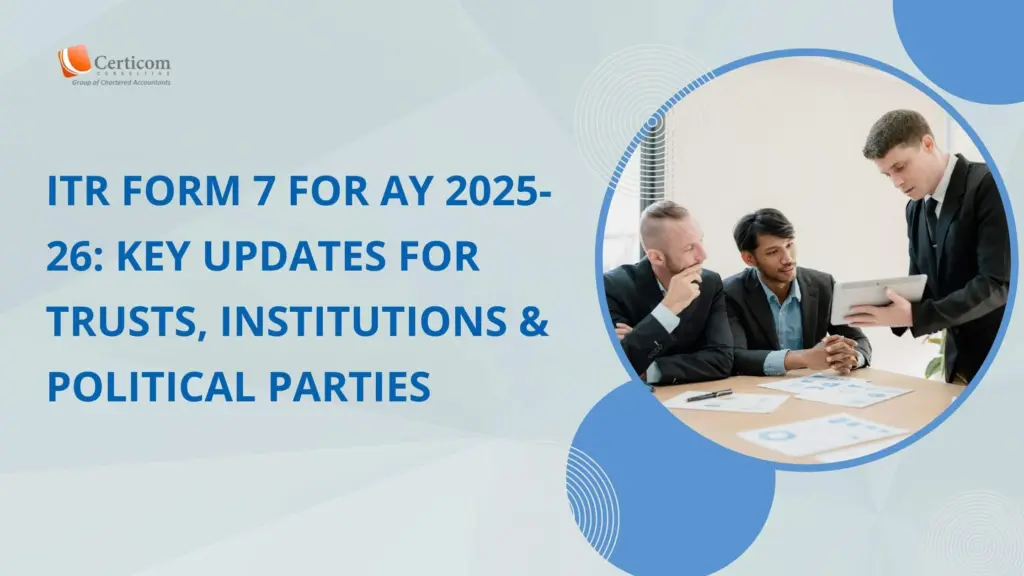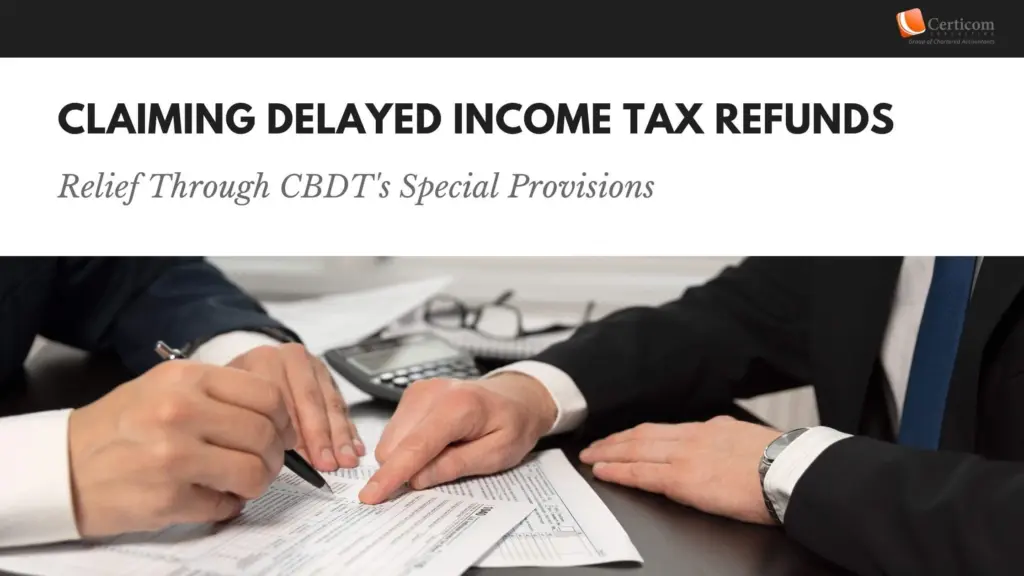ITR Form 7 for AY 2025-26: Key Updates for Trusts, Institutions & Political Parties

The Central Board of Direct Taxes (CBDT) has officially notified Income Tax Return (ITR) Form 7 for the Assessment Year (AY) 2025-26 through Notification No. 46/2025 dated 9th May 2025. The amendments form part of the Income-tax (Eighteenth Amendment) Rules, 2025, which take effect from April 1, 2025.
Who Should File ITR Form 7?
ITR Form 7 is to be furnished by persons — including companies — that are required to file returns under any of the following provisions of the Income-tax Act, 1961:
Section 139(4A) – Income of charitable/religious trusts
Section 139(4B) – Income of political parties
Section 139(4C) – Income of specific institutions (e.g., research associations, universities)
Section 139(4D) – Income of universities, colleges, or institutions not covered under other provisions
This form is primarily applicable to charitable trusts, political parties, educational institutions, research institutions, and certain notified entities.
How to File ITR-7?
ITR-7 must be filed electronically via the Income Tax Department’s e-Filing portal www.incometax.gov.in, and verified using any one of the following methods:
Digital Signature Certificate (DSC)
Electronic Verification Code (EVC)
Aadhaar-based OTP
By sending duly signed paper Form ITR‐V – Income Tax Return Verification Form by speed post only to CPC at the following address- Centralized Processing Centre, Income Tax Department, Bengaluru- 560500, Karnataka.

Special Note for Political Parties
Political parties must mandatorily submit the return through the digital verification methods (DSC, EVC, or Aadhaar OTP). Submission via physical ITR-V is not permitted for these entities.
Audit Report Filing Requirements
Entities required to furnish an audit report under the following sections are mandated to file the audit report electronically, at least one month prior to the due date of filing the return under Section 139(1):
Sections 10(23C)(iv), (v), (vi), (via)
Section 12A(1)(b) (for trusts registered under Section 12AB)
Section 92E (for international or specified domestic transactions)
The introduction of ITR Form 7 for AY 2025-26 streamlines the compliance process for institutions and entities under special tax regimes. Timely and accurate filing, including audit reports, is critical to avoid penalties and ensure tax-exempt status (where applicable). Entities falling under the specified categories must carefully review the form and prepare their filings in line with the new requirements.
Related Post
Unlock Foreign Tax Credits: A Step-by-Step Guide for Indian Residents
ITR Form 7 for AY 2025-26: Key Updates for Trusts, Institutions & Political Parties
Book A One To One Consultation Now For FREE
How can we help? *



